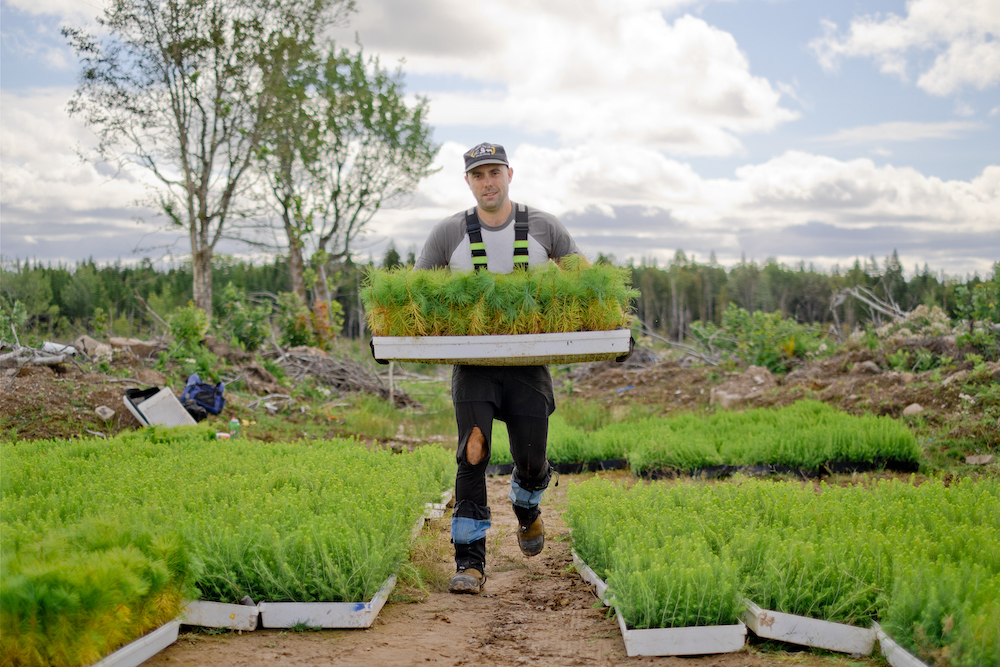Subscribe To Your Favourite Forests
Stories from the Wabanaki forest of the Maritimes, the Spice Forests of Zanzibar, and the mangrove forests of Mozambique.
Sign Me UpStories from the Wabanaki forest of the Maritimes, the Spice Forests of Zanzibar, and the mangrove forests of Mozambique.
Sign Me UpTree planting is one of the most effective solutions to mitigate climate change. We work in the Canadian Maritime Provinces, within the traditional Indigenous region of Wabanakik, to transform deforested land into thriving forest ecosystems. Within 10-15 years, newly restored forests begin to draw a significant amount of carbon out of the atmosphere, a process that increases as trees are allowed to mature.
We work predominantly in New Brunswick and Nova Scotia, where forests are being removed from the landscape faster than they can be replaced. In the last 25 years, 36% of New Brunswick’s forest has been cut, which is more than three times Canada’s average.
To regrow these clear-cut forests for improved climate change resilience and mitigation, Community Forests International plants diversity of climate-change resilient, native species on degraded lands. We develop long-term stewardship plans for the reforested lands and conduct outreach activities to increase public awareness of the need to restore forested landscapes.

Not all trees are planted equally. Only when done right will restoration projects have long-term climate and community benefits.
Learn How
Our tree planting work is done by Community Forests Canada (CFC), a dedicated group of individuals who plant thousands of trees each year. Or, as they like to put it, giving tree seedlings their forever home.
Follow CFC on Instagram!Notifications